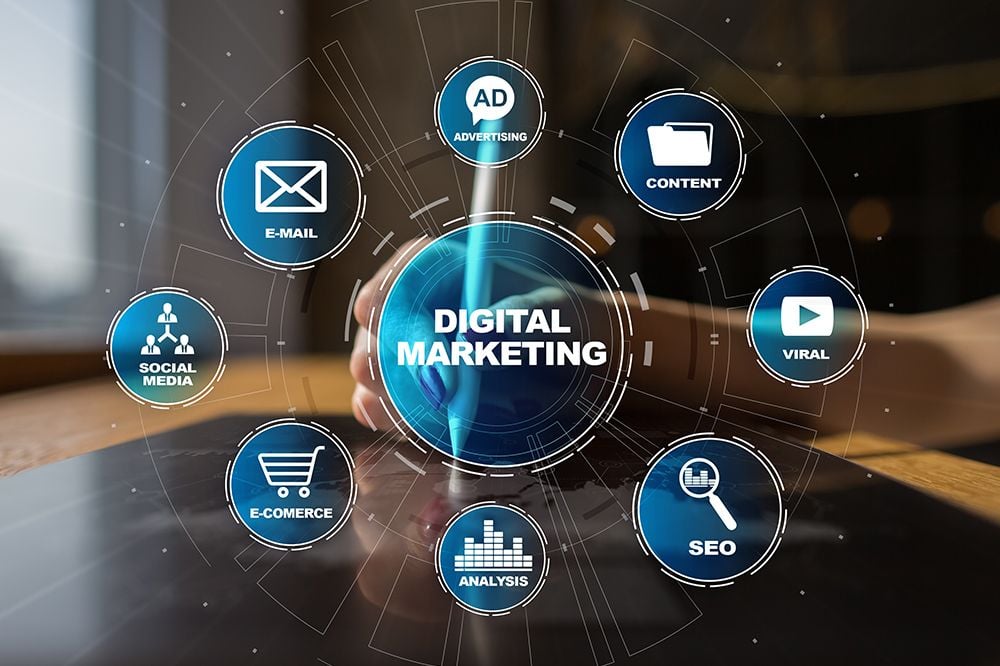Digital Marketing
Digital marketing refers to the use of digital channels, platforms, and technologies to promote products, services, or brands to reach and engage with target audiences. It encompasses various online marketing tactics aimed at increasing brand awareness, driving website traffic, generating leads, and ultimately, converting leads into customers. Here's an overview of key components and strategies in digital marketing:
Search Engine Optimization (SEO): SEO involves optimizing websites and content to improve their visibility in search engine results pages (SERPs) for relevant keywords and phrases. It includes on-page optimization (e.g., keyword research, meta tags, content optimization) and off-page optimization (e.g., link building, social signals) to increase organic (non-paid) traffic to a website.
Content Marketing: Content marketing focuses on creating and distributing valuable, relevant, and consistent content to attract and retain a target audience. This includes blog posts, articles, videos, infographics, eBooks, and other types of content designed to educate, entertain, or inspire potential customers.
Social Media Marketing (SMM): SMM involves leveraging social media platforms (e.g., Facebook, Twitter, Instagram, LinkedIn) to connect with audiences, build relationships, and promote products or services. It includes organic social media activities (e.g., posting content, engaging with followers) and paid social media advertising (e.g., sponsored posts, social media ads).
Email Marketing: Email marketing involves sending targeted, personalized emails to prospects and customers to nurture leads, drive conversions, and build customer loyalty. It includes email newsletters, promotional campaigns, lead nurturing sequences, and automated email workflows.
Search Engine Marketing (SEM): SEM encompasses paid advertising campaigns on search engines like Google, Bing, and Yahoo. It includes pay-per-click (PPC) advertising, where advertisers bid on keywords to display ads in search results, as well as display advertising on partner websites within the ad network.
Influencer Marketing: Influencer marketing involves partnering with influential individuals or content creators (influencers) to promote products or services to their audience. It leverages the trust and credibility that influencers have built with their followers to drive brand awareness and engagement.
Digital Advertising: Digital advertising encompasses various forms of online advertising beyond search engines and social media platforms. This includes display advertising (banner ads, pop-up ads), video advertising (pre-roll ads, in-stream ads), native advertising (sponsored content), and remarketing/retargeting ads (targeted ads to users who have previously visited a website).
Analytics and Data Analysis: Analytics play a crucial role in digital marketing by tracking and analyzing key performance metrics (KPIs) to measure the effectiveness of marketing campaigns, identify opportunities for improvement, and make data-driven decisions. Tools like Google Analytics, social media analytics, and marketing automation platforms provide valuable insights into user behavior, engagement, and conversion metrics.
Successful digital marketing strategies often combine multiple channels and tactics to create integrated campaigns that resonate with target audiences and achieve business objectives. Continuous optimization and experimentation are essential to adapt to changing trends, consumer behaviors, and algorithm updates in the digital landscape.


